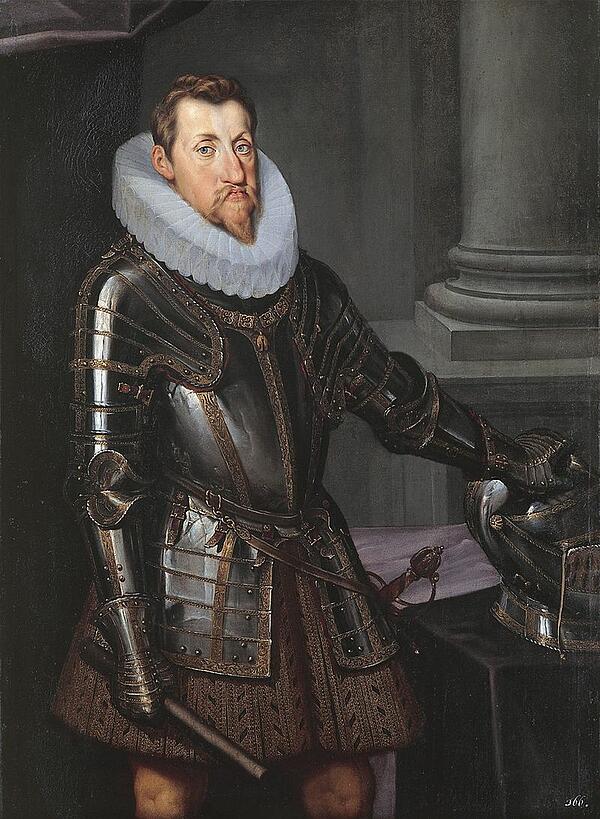Ferdinand of Styria
In 1617, the Bohemian Diet elected Ferdinand of Styria as king of Bohemia. Ferdinand, a member of the Habsburg family, became Holy Roman emperor two years later, as Ferdinand II. He was a devout Catholic and his persecution of Protestants led to the Bohemian Revolt.
Born in Graz in 1578, Ferdinand was the eldest son of the archduke Charles, the ruler of Inner Austria (Styria, Carinthia, and Carniola), and Maria, a daughter of Albrecht V, duke of Bavaria. From 1590 to 1595 he was educated at the University of Ingolstadt by Jesuits whose aim was to make him a strict, rigidly Catholic ruler.
When Ferdinand became king of Bohemia in 1617, he pursued a policy of Catholic reform and Habsburg advancement. Historians have commented on his ruthless and determined nature:
Ferdinand’s lack of religious toleration and autocratic regime upset many Protestants in Bohemia. His policies led to increasing social unrest, but he was encouraged by his Spanish cousins to be firm - any weakness in his rule could invite rebellion. Ferdinand agreed to give the Spanish Habsburgs Alsace in return for troops and money.

Ferdinand was elected Holy Roman Emperor in August 1619, giving him the titles of both emperor and king of Bohemia. However, his election caused outrage among Protestants in Bohemia who feared he would persecute them. They responded by apponting Frederick of the Palatine - a Calvinist - as king instead. Ferdinand suppressed the rebellion, which ended in the Battle of White Mountain in 1620. The Bohemian army was no match for the Emperor Ferdinand's troops. The actual battle lasted only an hour and left the Bohemian army in tatters. Some 4,000 Protestants were killed or captured, while Imperial losses amounted to only about 700. King Frederick (known as the Winter King owing to his brief reign) fled the country and Catholic rule was restored in Bohemia.
Historians debate over Ferdinand’s intentions in so harshly suppressing revolters. It may have been restore his control, but the historian Wedgwood believes that "absolute power was his aim". The Bohemian incident was an opportunity for Ferdinand to re-assert the power of the emperor which had been in decline for a number of decades.
Ferdinand confiscated the estates of the rebel magnates, reduced the Diet to impotence by a new constituent ordinance (1627), and forcibly catholicized Bohemia. The Protestants of Upper and Lower Austria were subjected to compulsory conversion.
Other historians argue that Ferdinand was a realist who knew his power in Germany was waning in Germany and would never be recovered. He was aware that his remaining sphere of influence was in the eastern sector of his empire and knew he had ensure that his power base - the eastern sector of the empire - remained loyal.
Ferdinand reached the peak of his power at the Peace of Prague in 1635. At this meeting, the German princes agreed to accept his authority and allied him to fight the enemies of the Austrian Habsburgs. In 1636, his son was elected King of the Romans.
He died in February 1637 aged 59.
See also: Bohemia Implications
MLA Citation/Reference
"Ferdinand of Styria". HistoryLearning.com. 2026. Web.
